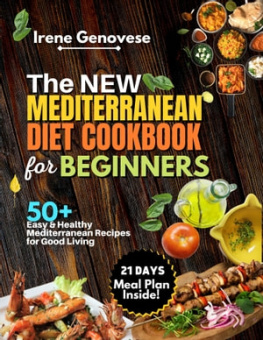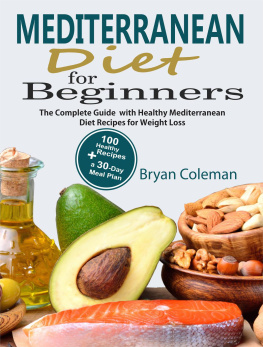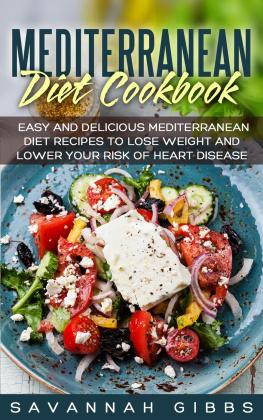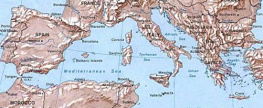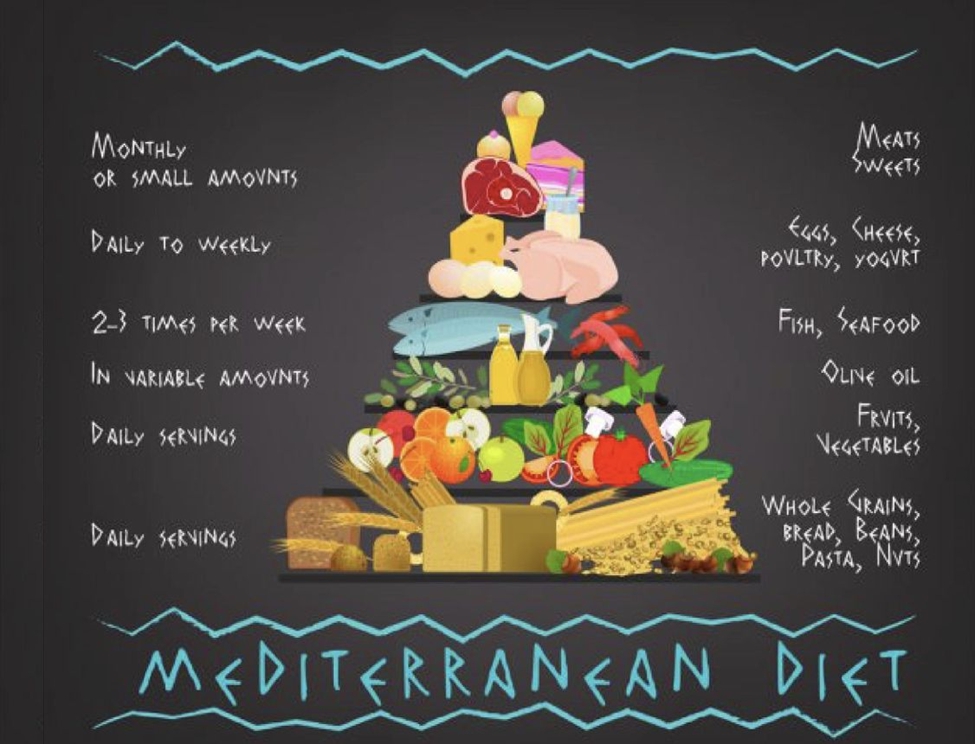Mediterranean Diet Cookbook for Beginners
500 Quick, Easy and Affordable Mouth-Watering Recipes That Anyone Can Cook, Even If You've Never Boiled an Egg or Are Always Busy.
28 Days Meal Plan Included
Written By
Delilah Hooper
Copyright 2020 All rights reserved
No part of this publication may be reproduced, duplicated or transmitted in any form or by any means, electronic, mechanical, scanning, photocopying, recording or otherwise without prior written permission from the publisher.
All rights reserved.
The information provided herein is stated to be truthful and consistent in that any liability, regarding inattention or otherwise, by any usage or abuse of any policies, processes or directions contained within is the solitary and complete responsibility of the recipient reader. Under no circumstances will any legal liability or blame be held against the publisher for any reparation, damages or monetary loss due to the information herein, either directly or indirectly.
Legal Notice
This book is copyright protected. This is only for personal use. You cannot amend, distribute, sell, quote, use or paraphrase any part of the content within this book without the consent of the author or copyright owner. Legal action will be pursued if this is breached.
Disclaimer Notice
Please note the information contained within this document is for educational and entertainment purposes only. This book not intended to be a substitute for medical advice. Please consult your health care provider for medical advice and treatment.
Table of Contents
Introduction
The Mediterranean diet is full of never-ending varieties of healthy, fresh, and delicious foods. Though there is more of an emphasis on certain types of ingredients, none are excluded. People who eat a Mediterranean diet can enjoy the dishes they love, while also learning to appreciate how good the freshest, healthiest foods can be.
There are no supplements or specifically packaged foods to buy, there are several vital ingredients that you'll need to store, and you'll also want to discover places where you can find sources for the healthiest and freshest vegetables, seafoods and fruits.
Transitioning into the Mediterranean diet is mainly about bracing yourself for a new way of eating, adapting your attitude toward food into one of joyful expectation and appreciation of good meals and good company. It's like a mindset as anything else, so you'll want to make your environment unite so you can easily adapt the lifestyle in the Mediterranean way.
Engaging into Mediterranean diet lifestyle can be as easy as getting out the quality meals so that you can fully relish your meals or visiting a few local markets to check out the freshness and prices of their offerings.
The Benefits of the Mediterranean Diet
Lowers Risk of Cardiovascular Disease
The Mediterranean diet has been acknowledged to be most helpful in reducing high triglyceride levels. Triglycerides are fatty molecules that travel throughout the bloodstream and build up plaque in our arteries. A higher triglyceride count or its accumulation in the bloodstream and vessels can lead to greater chance of stroke or heart attack and cholesterol. Even though the Mediterranean diet consists of fatty items like olive oil and salmon, they are good fats that are loaded with beneficial monounsaturated and polyunsaturated fats.
Improves Heart Health
The study shows that a Mediterranean diet rich in ALA (alpha-linolenic acid) found in olive oil can decrease the risk of cardiac death in a person by nearly 30. Further research shows that when comparing the blood pressure between people who consumed sunflower oil versus those consuming extra virgin oil, the olive oil consumers were able to decrease their blood pressure by more significant amounts.
Weight Loss
The types of food that the Mediterranean diet encourages, such as whole grains, beans, and legumes, consist of high amounts of fiber, which help to slow digestion and prevent frequent spikes in blood sugar levels. This means you feel full for a longer period without needing a snack.
Mediterranean diet is less caloric than the fatty diet of many western countries, and it makes large use of aromatic herbs that allow you to flavor the dishes, which has little or no amounts of fatty and high-calorie condiments.
Can Help to Fight Cancer
A study at the Mayo Clinic found that 800 people with advanced colon polyps ate red meat more frequently, and their diet did not correspond to foods on the Mediterranean diet. The World Cancer Research Fund reports that eating at least 90 grams of whole grains a day can lessen your risk of colon cancer by almost 20%. This is because the fiber in whole grains prevents any mutations from developing in your digestive tract and keeps your bowel movement in check.
Protects Cognitive Health
Following the Mediterranean diet could be key in protecting yourself from future neurodegenerative diseases like Parkinson's, dementia, or Alzheimer's. The healthy fats that the Mediterranean diet is full of are known to fight age-related cognitive decline, along with the anti-inflammatory protection that fresh fruits and vegetables provide.
It can improve your memory, mental acuity, and attention span as it protects your nerve cells from deteriorating with age.
Protection Against Type-2 Diabetes
The Mediterranean diet encourages meals seasoned with healthy spices and also encourages you to fill your dessert with fruit instead of baked foods that contain sugar. It is also significant that in many studies, participants on the Mediterranean diet tended to lose, on average more weight than participants on other low carb or low-fat diets. Due to this weight loss, you can reduce your risk of diabetes, and maybe even delay needing any further medication.
Increase Sight
Since the Mediterranean diet is full of fruits, vegetables, and regular servings of fish, it has great amounts of vitamins that protect your sight. Fish is also high in omega-three fatty acids, which is critical to sight health. Just having one serving of fish in a week can lower the risk of developing eye damage, which occurs commonly in people over the age of 50. With the Mediterranean diet, you are incorporating fish in your diet more than two times a week! The seeds and nuts you are eating as snacks also contain fatty acids that protect the retinas from cellular damage, which occurs with age.
Your Kidney Function Improves
A 2014 study in the Clinical Journal of American Society of Nephrology found that following the Mediterranean diet may decrease the chances of having chronic kidney disease by almost 50%. This could be attributed to clean and healthy food choices that the Mediterranean diet requires, with less processed food and red meat. Fish, nuts, fresh fruits, and vegetables are known to lower inflammation in the body, which causes kidney disease.
Keeps Your Skin Healthy
By following the Mediterranean diet, you will cut out extra sugar and instead rely on healthy fruits with natural sugars. A study even found that people with higher blood sugar levels were considered "older-looking" based on the appearance of their skin compared to people with low blood sugar levels. Eating a balanced diet full of healthy vitamins and minerals keeps your skin healthy, and that's precisely what the Mediterranean diet provides!
The Mediterranean Diet Pyramid
The Mediterranean Diet Pyramid is a nutritional guide that was developed by Oldways Preservation Trust, the World Health Organization, and by the Harvard School of Public Health in 1993. It is a visual tool that summarizes the Mediterranean diet, suggested the pattern of eating, and gave a guide to how frequently specific tools should be eaten. This allows you to have a breakdown of healthy eating habits and not to overfill yourself with too many calories.







